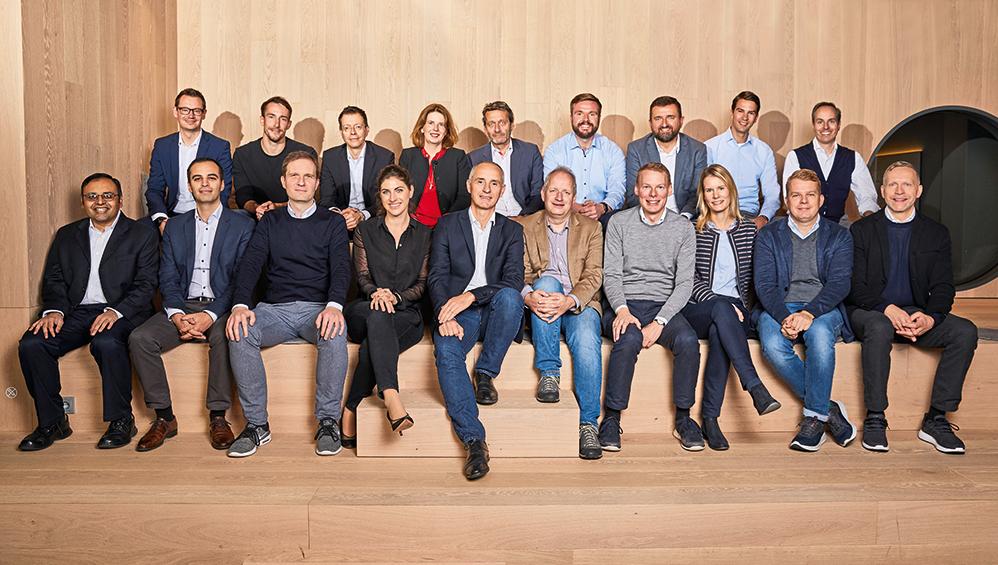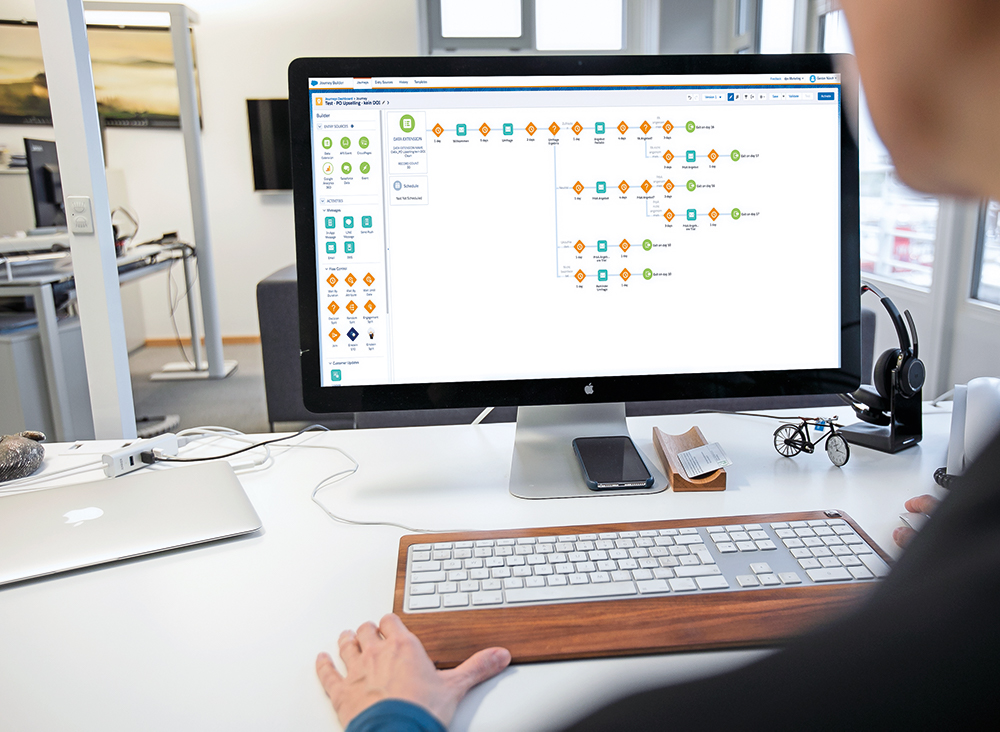


Global Sharing in the “Data Exchange” Network
The “Data Exchange” initiative brings together data specialists from all Bertelsmann divisions. They share their expertise, coordinate priorities in matters of the cloud, data and artificial intelligence (AI), and plan cross-divisional projects. At meetings and hackathons, they also discuss very specific use cases for Bertelsmann, such as AI-controlled analyses, voice-controlled search functions for video content, and automated podcast listening recommendations. The network of experts now has more than 400 members worldwide and meets regularly in Europe and the United States.
Tomorrow’s Data Scientists
Bertelsmann’s “Median Data Science Program” addresses prospective data specialists from leading universities in hopes of recruiting them to help implement the Group’s tech agenda. Bertelsmann offers young talents with a passion for data science, statistics, applied mathematics, physics and IT an ambitious, internationally oriented career program that runs for 15 months. Those who qualify get to know at least three projects in various corporate divisions alongside Bertelsmann’s data professionals, and can play an active role in the projects. The first five tech talents successfully completed the trainee program in 2019.




A Cloud-Based Marketplace for More Collaboration
Cloud solutions help Bertelsmann optimize workflows and IT structures by achieving closer collaboration on data analysis tools and software development across the Group. The central point of contact is the cloud-based “Bertelsmann Collaboration Platform,” which serves as a marketplace for sharing technical solutions. Here, IT solutions that have proved helpful in one company can be presented and shared across the Group.
Book Meets High-Tech
At first glance, printed books don’t necessarily have much to do with digital data networks – and yet topics such as the cloud and artificial intelligence are increasingly becoming success factors for publishers as well. For example, books – whether printed books, e-books or audiobooks – can be given optimal placement in online shops by using metadata such as keywords. Efficient data analysis and the use of artificial intelligence are of crucial value for title marketing at Penguin Random House as well. Since 2019, all the Group’s publishers have been able to use the cloud-based “Global Data Hub” platform for even better integration of intelligent data and IT solutions into the publishing business.
With these and other initiatives, Penguin Random House has attained the rank and reputation of being the undisputed tech leader in the book industry. Downstream from the creative process on the part of the publishing house’s authors and editors, the books’ pricing in online bookstores, as well as storage, distribution and shipping, are now managed worldwide by sophisticated IT.


Big Data for More Subscriptions
A “Brigitte” reader who listens to crime-thriller podcasts and has repeatedly entered competitions to win trips to Sylt might well be interested in a “Stern Crime” subscription or the “Geo” calendar “Germany’s Most Beautiful Landscapes.” The media company’s sales experts are relying on cloud-based systems and artificial intelligence to ensure that the publishing house’s customers receive precisely such targeted suggestions for other Gruner + Jahr products.
Since 2019, Gruner + Jahr has worked with the cloud computing provider Salesforce to analyze existing customer data in compliance with the GDPR, using networked cloud systems for such purposes as marketing, campaign and recommendation management. This involves planning various possibilities for further interaction in advance, starting from a given contact point. In the next step, cross-media advertising measures are then automatically played out. From custom shop offers to bespoke customer service conversations, this makes it possible to improve both customer satisfaction and the likelihood of a purchase.
At the Top of the Supply Chain Data Mountain
Arvato Supply Chain Solutions uses the advantages of data analysis and artificial intelligence to increase the efficiency, speed and cost-effectiveness of logistics processes. Two data science teams retroactively analyze all data generated along the value chain – by end customers, clients, suppliers and transport service providers – for possible weak points.
It may be noticed, for example, that a product offered online is ordered frequently, but repeatedly returned due to a misleading item description. Such a weakness can be quickly remedied manually – but given the 950 million shipped items and more than 10 million returns that pass through Arvato’s logistics sites each year, the potential of such automated improvements becomes clear.
If a customer orders the identical dress in two different sizes, there is a high probability that one of them will be returned. Algorithms recognize such patterns and help subsequently optimize process chains, routes in the warehouse, storage space and personnel requirements.


As an independent body, the European netID Foundation supports Internet offers across all industries in implementing the new European data protection legislation, and thus offers a European login alternative to international offers.








